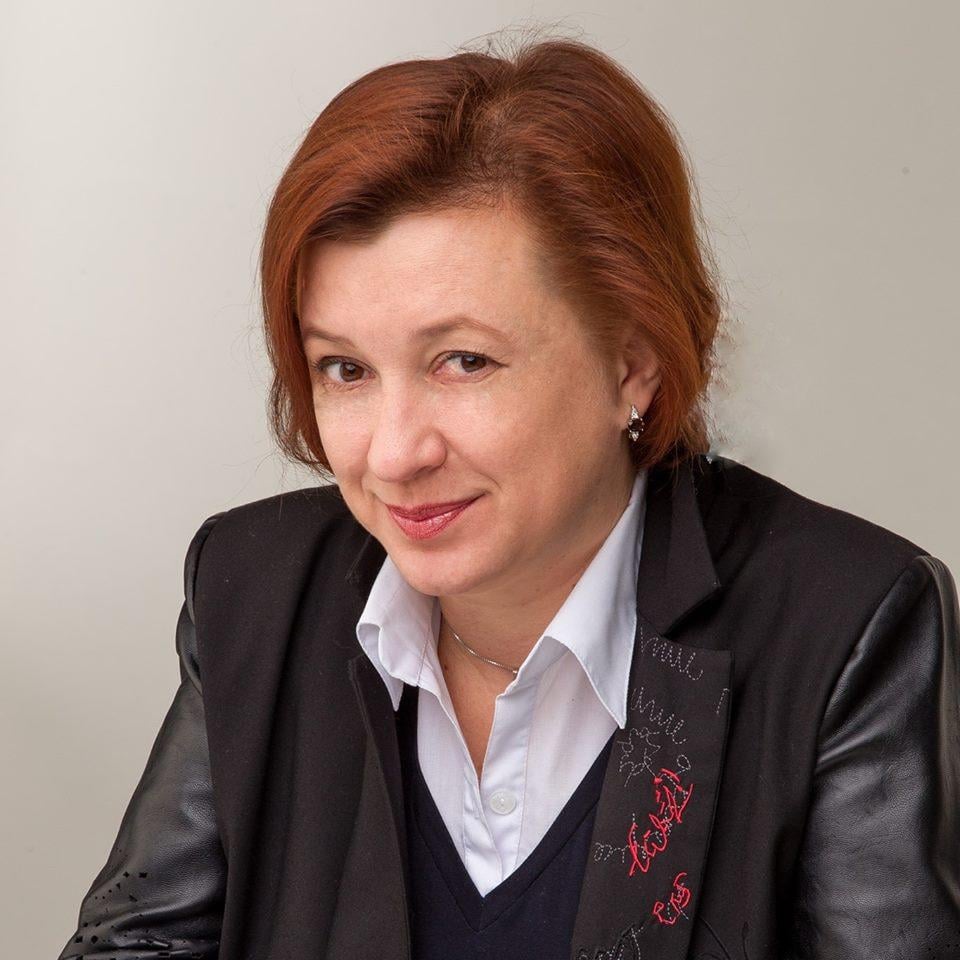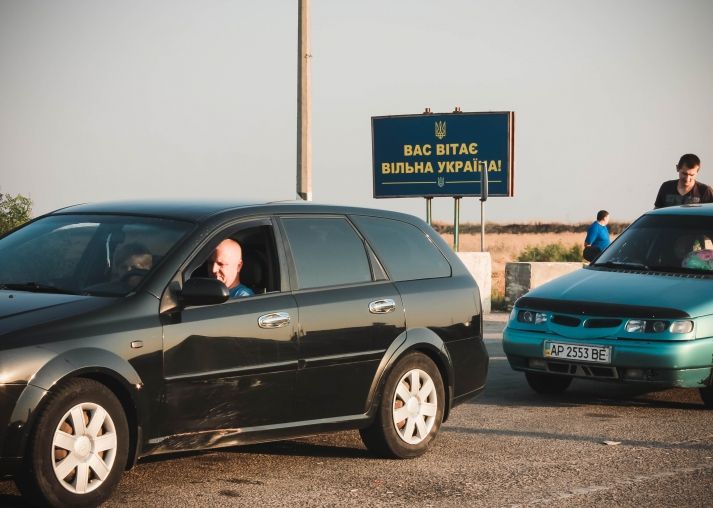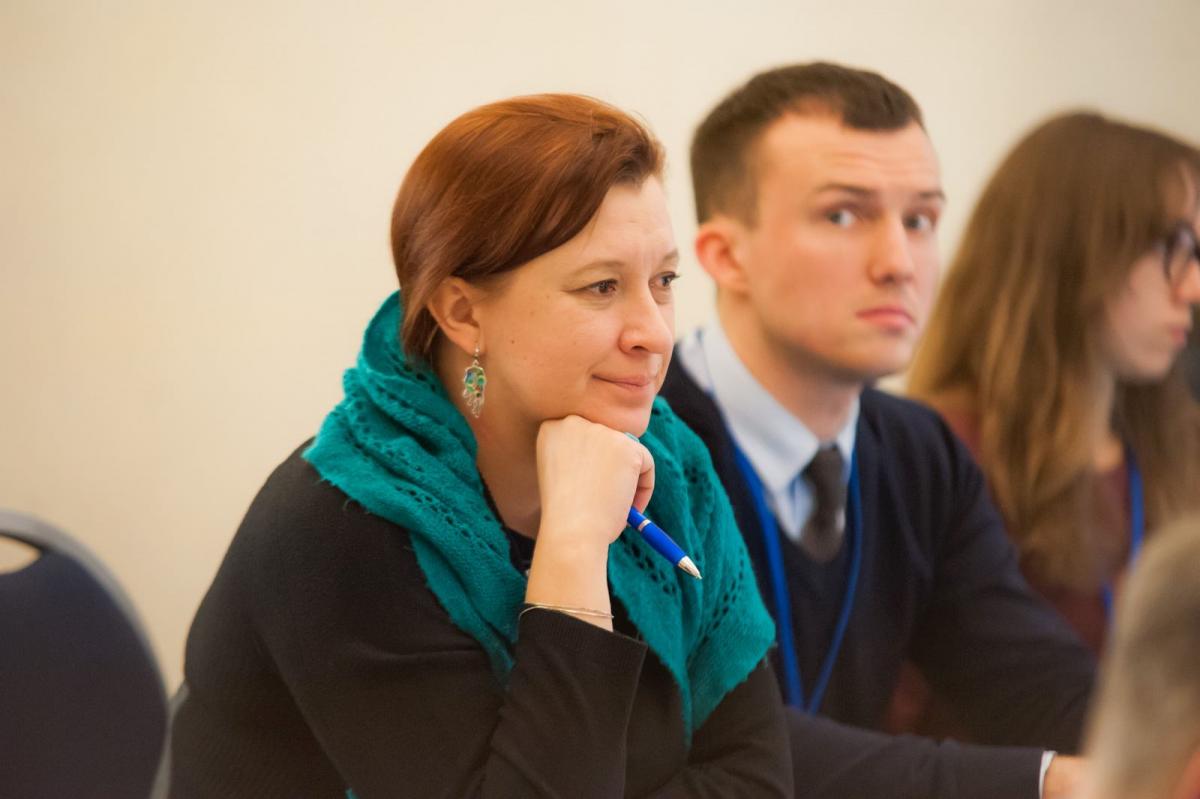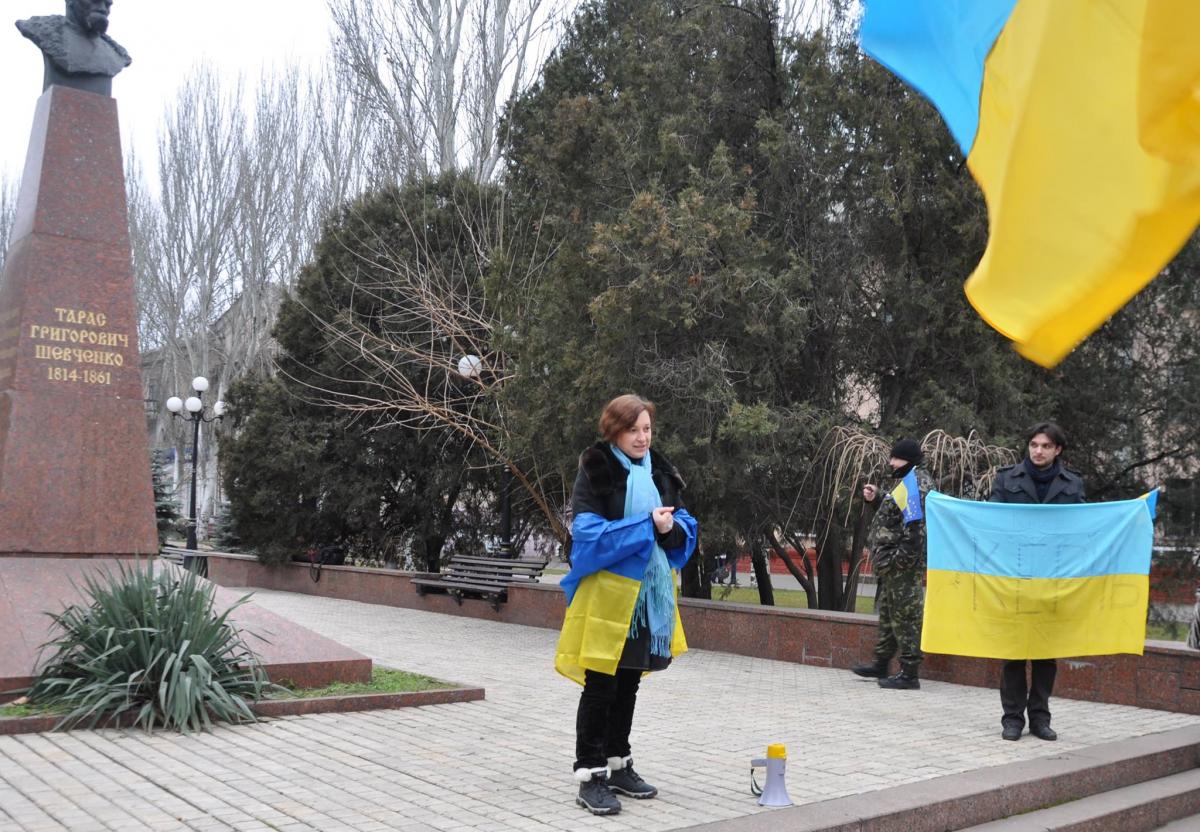
Iryna Siedova: Ukraine needs to show that it can broadcast in the occupied territories in the language of people living there... Otherwise, the invaders will say Bandera followers want to destroy Russian language
Representative of the Crimean Human Rights Protection Group Iryna Siedova in an interview with UNIAN told whether broadcasting across Crimea from the TV tower in Chongar is effective, how the invaders block the signal of Ukrainian radio stations in Crimea, and what to do in order to gain confidence of a Crimean audience that still does not know whom to trust - Ukraine or Russia.
Four years into the occupation, residents of the temporarily occupied territories of Ukraine, in particular, Crimea, have been victims of information disorientation and have little faith in the reports of both Ukrainian and Russian media. However, the problem is also that the latter have much more presence, while occupation authorities do their best to drown Ukraine's signal.
In July, the Crimean Human Rights Protection Group checked the effectiveness of four Ukrainian radio stations - "Ukrainian Radio", "Meydan", "Crimea.Realities," and " Kherson FM." These radio stations last year began broadcasting to Crimea from a TV tower installed in the village of Chongar of Kherson region. According to the initial idea, the signal was to cover both Kherson region and the entire northern part of Crimea. Monitoring was carried out in 13 settlements in the north of Crimea – through car radios and portable FM radios. According to monitoring results, human rights activists conclude that, in recent years, the occupation authorities of Crimea have been jamming the signal of Ukrainian broadcasters by putting Russian radio stations on the same frequencies.
UNIAN sat down with the representative of the Crimean HRPG, Iryna Siedova, to discuss this problem, as well as the ways to address it and win audience's confidence in Crimea.
The launch of the Chongar TV tower for broadcasting to Crimea a year ago was presented as the largest joint project of the Ministry of Information Policy and the National Council for Television and Radio Broadcasting. Do you know how much this project cost?
After our monitoring of FM stations' effectiveness in Crimea, I chatted on Facebook with Serhiy Kostynsky, who represents the National Council and deals with the issues of Crimea. Based on what he said, it turns out that the construction of the tower is the credit of a private investor (I don't remember the name) - not a penny of budget funds was spent to this end. In addition, all broadcasters who received licenses paid their own money for both licenses and transmitters. That is, it is not a state project. The state simply helped to get the frequencies.
In your opinion, is it necessary for the state to join the effort and spend budget funds?
That's a difficult question. In fact, if the tower brings a good effect, public money indeed can be spent on it. But to make sure it does, it is necessary to check and monitor the work not only of radio, but also of television stations. Maybe monitoring should not be public, but it must be systematic, for those who invested money in the tower to see that it brings some effect.
Indeed, if there is an effect, it makes sense to build more such towers for budget funds, for example, in Kalanchak (the signal from Chongar tower does not physically cover some parts of Crimea). However, most likely, it will be necessary to "jump" between frequencies to respond whenever the occupation authorities block certain frequencies. And here everything is not so simple, it is necessary to fix the legislation.
Our current legislation on the use of frequencies and licensing was adopted for peacetime. Now we need some measures that will take into account the challenges of the information war. This is a complex process. The fact that they managed, without rewriting the legislation, to put this tower in Chongar, to launch at least some broadcasting is, of course, a victory. Now the task of the state is not only to launch broadcasting, but also to make it work there.
Please, clarify the nuances of your monitoring in Crimea. Who conducted it, were there any obstacles?
All our monitoring is carried out by ordinary people living in Crimea. We do not tell who they are, as it's not safe for them.
You mentioned the need for systematic monitoring, maybe even by the state, according to which one could judge the feasibility of building new towers. How do you see such monitoring, again, taking into account the security aspect. Do you also need to attract local people, or take risk and deploy experts from Kyiv?
It is better, of course, to find some local residents willing to cooperate. Specialists from Kyiv still have to rent cars, and this information could be leaked to the FSB. Driving cars with Ukrainian plates across Crimea, doing some research, would mean drawing unnecessary attention. And this, in my opinion, is really unsafe.

You see, we made this monitoring system, including to help our own authorities. If they wanted to cooperate with us, they could ask us to monitor for them, maybe not even publicly. But there have been no such appeals yet. There was only criticism of our last monitoring. They claimed that by presenting its results to the public, we're also informing the FSB. But this is not so! We inform our society, our citizens about how much access to Ukrainian information there is in Crimea. And, in fact, now this is a big problem.
You once mentioned that the Russian signal makes its way to the Kherson region, creating obstacles for Ukrainian broadcasters. Can we somehow block it from our side?
I'm not a technical specialist, but there is a scheme for jamming the signal. And this, too, of course, must be dealt with systematically – there should be monitoring, to do everything so that their signal does not break through.
I read your recent commentary in social networks about the real situation with broadcasting to Crimea: "... our politicians' statements that Ukrainian radio stations broadcast in Crimea, while they do not really broadcast there, affect Ukraine's ratings in the eyes of Crimeans much stronger than truth, however bitter it might be." Is this your subjective assessment, or perhaps those people from Crimea who helped you monitor, have paid attention to this nuance?
Look, we had information that four Ukrainian radio stations were broadcasting in Crimea. Our monitoring showed that, in fact, they were not. And it makes no sense to tell even the citizens of Ukraine that there is broadcasting to Crimea.
Doing PR on something that is not happening is populism that cannot be accepted. It is necessary to tell the truth to people, even if, from the point of view of pro-Ukrainian propaganda, it is not a good thing. If we really want to win the trust of Crimeans, we need to tell the truth, even if it is not always convenient for us.

Since October this year, Ukrainian media that broadcast to the temporarily occupied territories of Donetsk and Luhansk regions, as well as to the territory of the illegally annexed Crimea, will have a 75% share of Ukrainian language content. Do we need language quotas for the occupied territories?
I believe we don't. You know, there is such a thing as "soft Ukrainization" ... Crimea has been taken away from us. For four years, people, in fact, have no access to Ukrainian information, to the media. Our attempts to launch radio broadcasting, as we see, have so far not been crowned with real success. People are physically unaccustomed to the Ukrainian language. And, of course, they will not be very comfortable listening to the Ukrainian language on the radio - they will switch to Russian stations.
Ukrainian content should be in Russian with inclusions of the Ukrainian language, but gradual ones. First, 25 percent, then 30-40 percent. Or, for example, we could launch one station completely in Russian, and then another one, completely in Ukrainian.
At the same time, our primary task today is to establish stable broadcasting. When we have a scheme of how to avoid blocking, when broadcasting works fine, we will need to make sure that our content is also "digested" by Crimeans without resistance. That's because Russian propaganda specifically speculates on the language issue. When we monitored the language of hostility in the Crimean media, one of the main points for speculation was precisely the language issue. If we include only Ukrainian-language stations, they say, they will say, you see, Bandera followers destroyed the Russian language in Ukraine, now they want to do this in Crimea.
It is necessary to take into account the interests of the population that lives there. Ukraine needs to show that it can broadcast in the occupied territory in the language spoken by people there. After all, let's admit honestly, probably for 80% of Crimeans, Russian language is native. Why am I talking with you in Russian right now? I've been living in Kyiv for four years, I have learned Ukrainian, I write in it, but if I need to convey my idea very quickly and emotionally, it is still easier for me to speak Russian.
Had these four stations, which had been operating for a year, until blockings began, been broadcasting mainly in Ukrainian?
No, why? "Crimea. Realities" has Russian-language programs. Guests speak the language they are comfortable with. Radio "Meydan" should broadcast in Crimean Tatar language.
In the context of the discussion on what should be the language of broadcasting in Crimea, the aspect of banal fear is also interesting. I mean that listening to Ukrainian-language content can be unsafe because once I switch on the radio and there is a show in Ukrainian, my neighbor might hear and report me to the FSB. We do know, that such reports in Crimea have become commonplace.
I don't think that this will be a problem. There are still plenty of people in Crimea who sport vyshyvnkas. And those of our people who love Ukrainian-language content can get it - because "Ukrainian Radio", which received a license, broadcasts only in Ukrainian. There are practically no Russian-language programs.
However, I repeat, we must take into account the interests of the population of Crimea. And the most important message in our information work with Crimea is that it's our citizens who live there. This is for some reason being forgotten. They propose to pay attention only to those who support Ukraine, those waiting for us to return Crimea. In fact, in my opinion, first of all, it is necessary to work with an audience that has not decided whom to trust - Ukraine or Russia. There are a lot of people who are in doubt. And our task is to make sure they trust us more.

I read the post by Serhiy Kostynsky, where he writes the following: "When we say that for the occupied territories we need some special adapted language (Russian), we simply separate our fellow citizens who became hostages of the Russian occupation. If we choose the Russian as the language of communication with Crimea and Donbas, we agree with the Kremlin that Donetsk and Luhansk regions, as well as Crimea, are inhabited by people other than Ukrainians, and that this land has never historically and legally been part of Ukraine..." Could you comment on this?
Many men, many minds… I have been engaged in media operations in Crimea for ten years, and I know what's up. I know how hatred for everything Ukrainian had been imposed by Russian propaganda long before the occupation. To overcome this hatred, to overcome the language of enmity, we need to act more gently, rather than harshly. It's my opinion.
In general, in your opinion, does the state approach to broadcasting in the occupied territories need any changes? If so, what changes are needed?
There are at least some shifts in this direction, and it is already pleasing. I hope that they will be successful. Perhaps our monitoring will also help. They will be more aware of possible challenges and they will take this into account in the further development of broadcasting.
I'm glad that there are people who launched the TV tower. This is a good initiative, so let them move on. We, on our part, will continue to do our work, carry out monitoring. After all, the task of civil society is just to monitor the work of state bodies. As we are in a state of armed conflict with Russia, we monitor the work on Crimea of state agencies of both Ukraine, and Russia. I hope that the monitoring of the efforts of Ukrainian state bodies will bring us only positive results. After all, monitoring the work of Russian ones, on the contrary, is only negative.
When can we expect new research results?
We hope that in a couple of months we will be able to do something like that. Maybe the situation will change.
Will you check the same areas of Crimea?
I don't know yet. I talked with one of our broadcasters, who received a license. They said that they have a list of cities which their radio stations previously covered. I want to see this list, so that we get to those very settlements, to clearly understand whether there is broadcasting or not.
We also want to understand how the blocking system works. That is, we are talking about the overlay of frequencies or special jamming. We are not technical specialists, and this time we did not have a clear task to deal with this issue. But for our future efforts, if we record parts of broadcasting, we can show them to our broadcasters and technicians for them to see how our signals are being blocked.
Iryna Shevchenko

